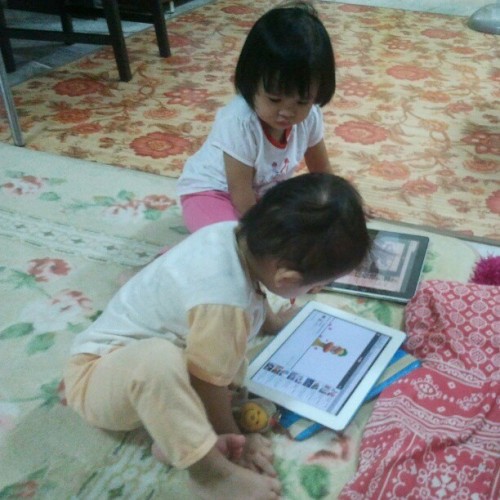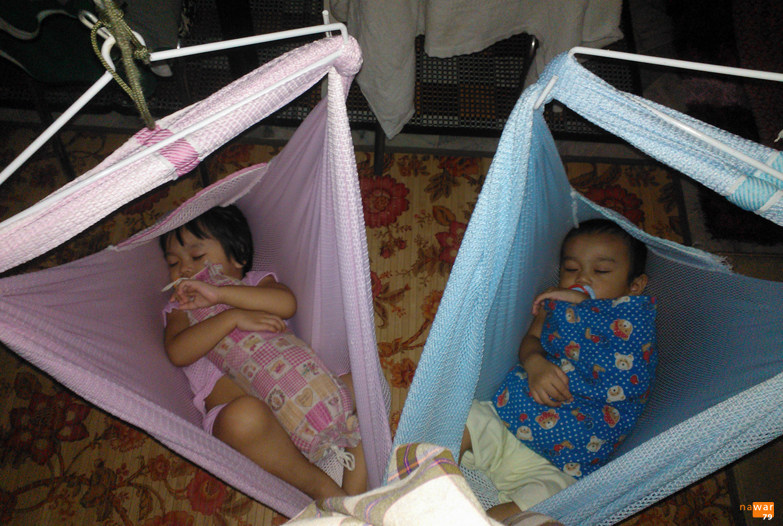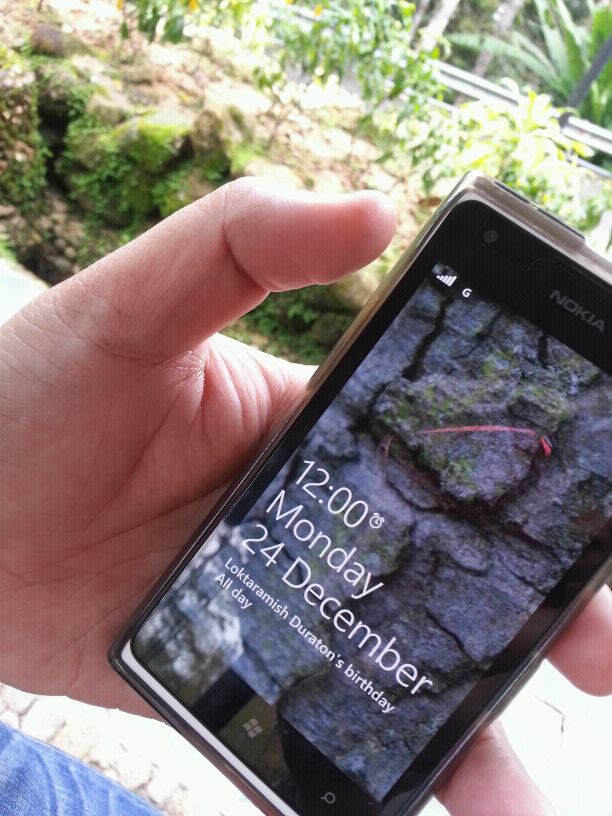
Adam sedang menonton Pocoyo sambil diperhatikan oleh kekandanya.

Adam sedang menonton Pocoyo sambil diperhatikan oleh kekandanya.
Tengah dok browse sana dan sini sambil menunggu kain siap cuci. Terjumpa pula gambar atok saya.
Image Source : APANAMA

Ini budak² mempunyai sedikit sebanyak perwatakan kami berdua. Dari style tidur sampailah ke bilik air. Orang tengok mesti tahu bahawa mereka adalah anak² Munawar. Mengadanya, merajuknya, korek hidung, banyak cakap dan macam2 lagi. Nak marah pon ada, tapi nak buat macam mana, dah budak² memang macam tuh. Kenakalan persis bapanya (kata orang² yang pernah menjaga saya), roda dunia pusing balik pulang kembali kepada saya. Nah rasakan Munawar, dahulu hang Champion, la hang mangsa buli anak².
Terima kasih ya-Rahman. Bersyukur akan aku ke-atas anugerah Mu ini.
Sejahtera Dalam kesibukan meneruskan kehidupan disamping anak² dan isteri tersayang, rupa²nya dah lebih 3 dekad aku bernyawa. Macam² benda yang dipelajari dan pelbagai dugaan dan cabaran sudah ditempuhi. Yang pahit dan yang manis semuanya sudah berlalu. Dari hidup bujang dan menjadi seorang suami serta seorang bapa, semuanya berlalu dengan cepat sekali.
Benarlah Firman Allah SWT di dalam Surah Al-‘Asr
103:1 – Demi Masa!
103:2 – Sesungguhnya manusia itu dalam kerugian
103:3 – Kecuali orang-orang yang beriman dan beramal soleh, dan mereka pula berpesan-pesan dengan kebenaran serta berpesan-pesan dengan sabar.
Masa tidak menunggu kita walau barang sesat. Anda lambat anda rugi. Bukan macam Bini tunggu laki dia siap atau sebaliknya. Yang itu kita boleh rilek². Kerugian senantiasa berada dipihak kita jika kiranya kita tidak mengambil manfaat dari masa yang kita ada.
Dahulu ada macam² perkara nak buat. Cikgu tanya nak jadi apa bila dah besar. Macam² jawapan terbit. Kalau saya dah besar saya nak buat itu, saya nak buat ini. Saya nak jadi itu dan saya nak jadi ini. Tapi itu semua adalah angan² waktu kecil. Realitinya tidak semudah itu. Masa adalah kekangan manusia numero uno. Setiap pilihan hendaklah dibuat secara berhati².
Oleh itu, kenang²lah kata² Nabi Junjungan kita semua:
Rebutlah lima perkara sebelum datangnya lima perkara.
- Masa sihat sebelum sakit
- Masa kaya sebelum datangnya masa sempit (miskin)
- Masa lapang sebelum tiba masa sibuk
- Masa muda sebelum datang masa tua, dan
- Masa hidup sebelum tiba masa mati.
Riwayat al-Hakim dan al-Baihaqi
Maka dengan ini… makin tua lah diri ini dan masih banyak lagi yang harus dilakukan. InsyaAllah.

Hari ini adalah hari lahir Loktaramish Duraton
An interesting article from lifehacker.com written by John Coleman
Want to Be a Great Leader? Start Reading
Even though global literacy rates are high (84%), people are reading less and less deeply. This trend is especially detrimental to those in leadership roles. As John Coleman explains, deep, broad reading habits are often a defining characteristic of great leaders, and can catalyze insight, innovation, empathy, and personal effectiveness.
The National Endowment for the Arts has found that “reading has declined among every group of adult Americans,” and for the first time in American history, “less than half of the U.S. adult American population is reading literature.” This is terrible for leadership, where my experience suggests those trends are even more pronounced. Business people seem to be reading less—particularly material unrelated to business.
Note how many business titans are or have been avid readers. According to The New York Times, Steve Jobs had an “inexhaustible interest” in William Blake; Nike founder Phil Knight so reveres his library that in it you have to take off your shoes and bow; and Harman Industries founder Sidney Harman called poets “the original systems thinkers,” quoting freely from Shakespeare and Tennyson. In Passion & Purpose, David Gergen notes that Carlyle Group founder David Rubenstein reads dozens of books each week.
And history is littered not only with great leaders who were avid readers and writers (remember, Winston Churchill won his Nobel prize in Literature, not Peace), but with business leaders who believed that deep, broad reading cultivated in them the knowledge, habits, and talents to improve their organizations.
The leadership benefits of reading are wide-ranging. Evidence suggests reading can improve intelligence and lead to innovation and insight. Some studies have shown, for example, that reading makes you smarter through “a larger vocabulary and more world knowledge in addition to the abstract reasoning skills.” Reading—whether Wikipedia, Michael Lewis, or Aristotle—is one of the quickest ways to acquire and assimilate new information.
Many business people claim that reading across fields is good for creativity. And leaders who can sample insights in other fields, such as sociology, the physical sciences, economics, or psychology, and apply them to their organizations are more likely to innovate and prosper.
Reading can also make you more effective in leading others. Reading increases verbal intelligence, making a leader a more adept and articulate communicator. Reading novels can improve empathy and understanding of social cues, allowing a leader to better work with and understand others—traits that author Anne Kreamer persuasively linked to increased organizational effectiveness, and to pay raises and promotions for the leaders who possessed these qualities. And any business person understands that heightened emotional intelligence will improve his or her leadership and management ability.
Finally, an active literary life can make you more personally effective by keeping you relaxed and improving health. Reading is a great way to relax, as reading for six minutes can reduce stress by 68%, and some studies suggest reading may even fend off Alzheimer’s, extending the longevity of the mind.
Reading more can lead to a host of benefits for people of all stripes. So how can you get started? Here are a few tips:
Original Post: http://lifehacker.com/5936493/want-to-be-a-great-leader-start-reading